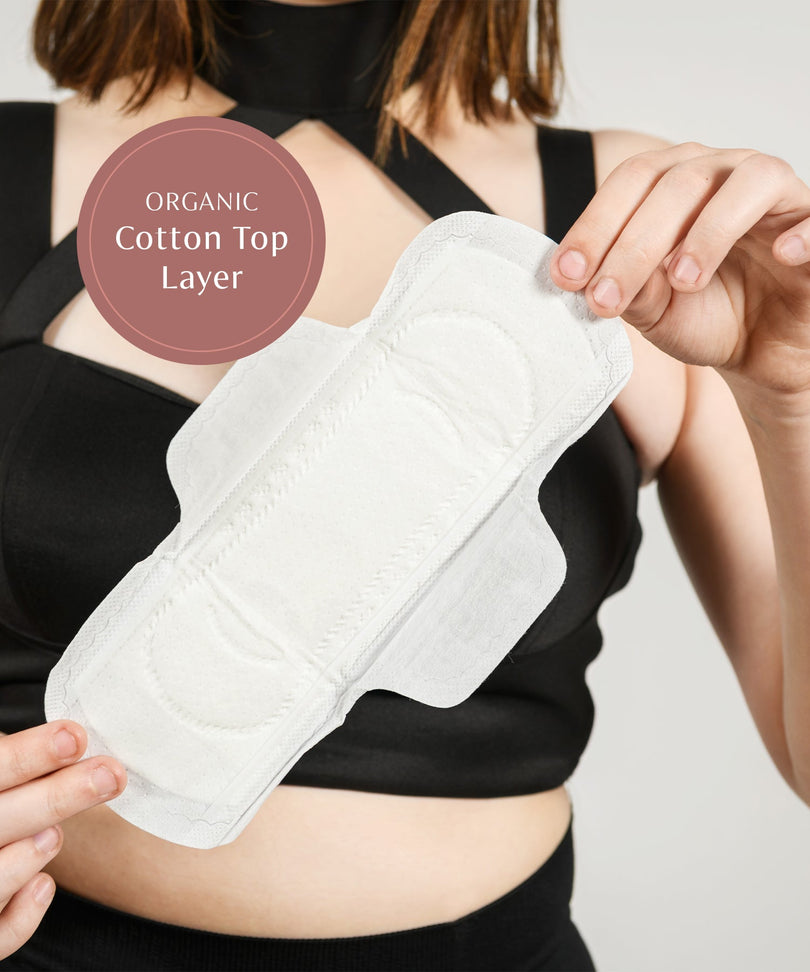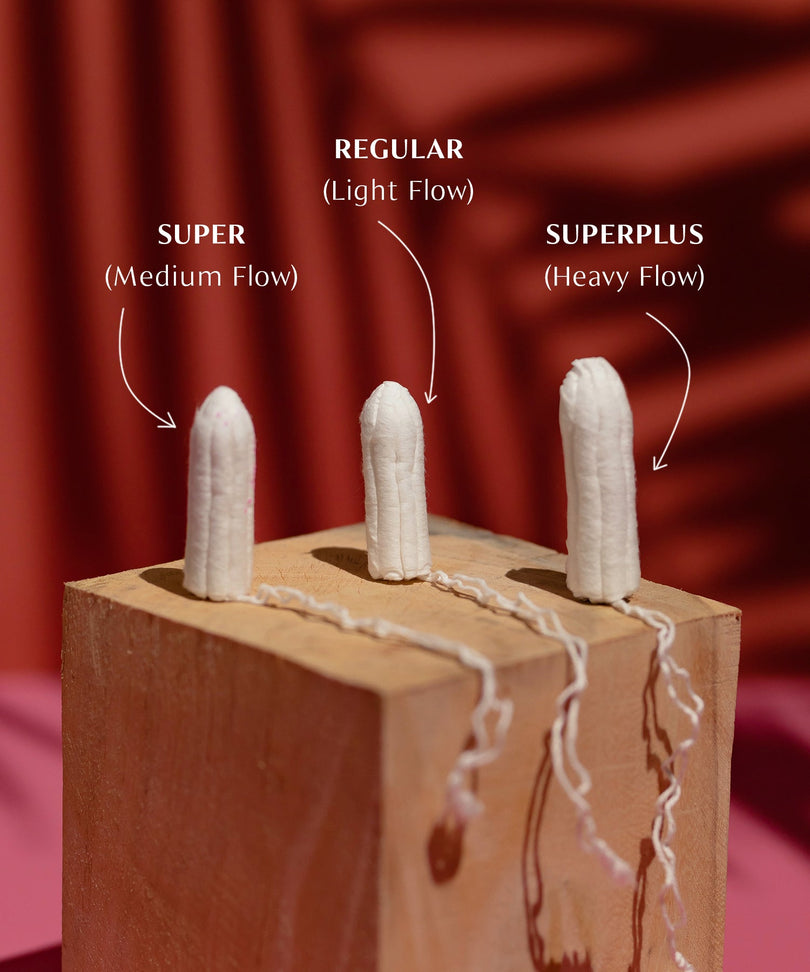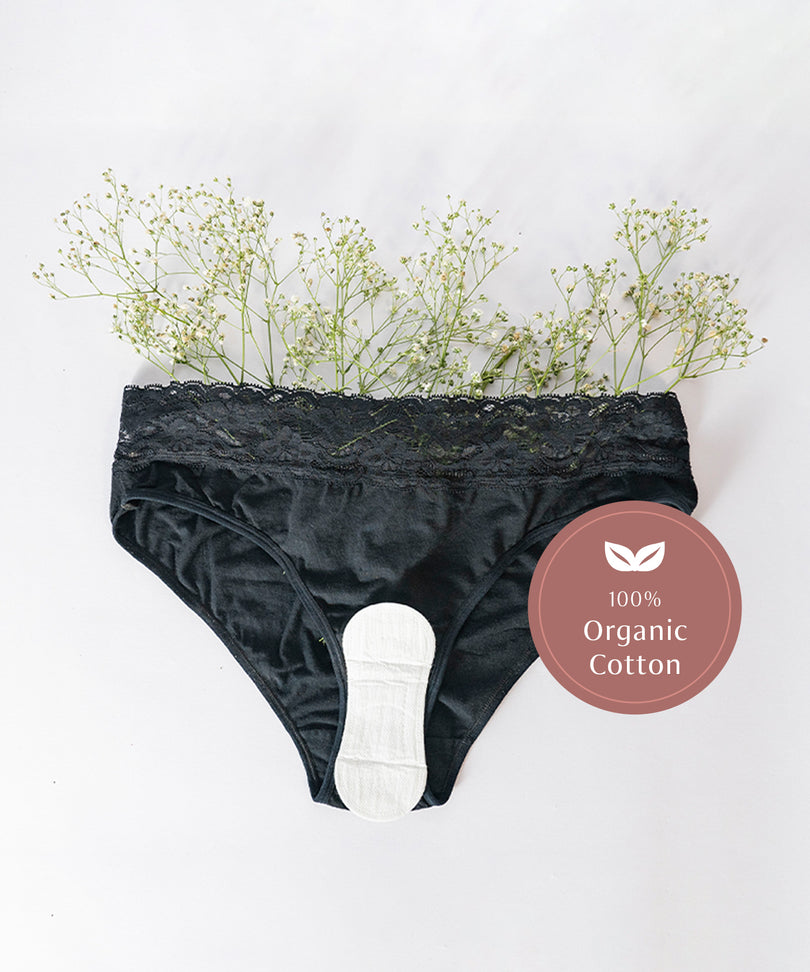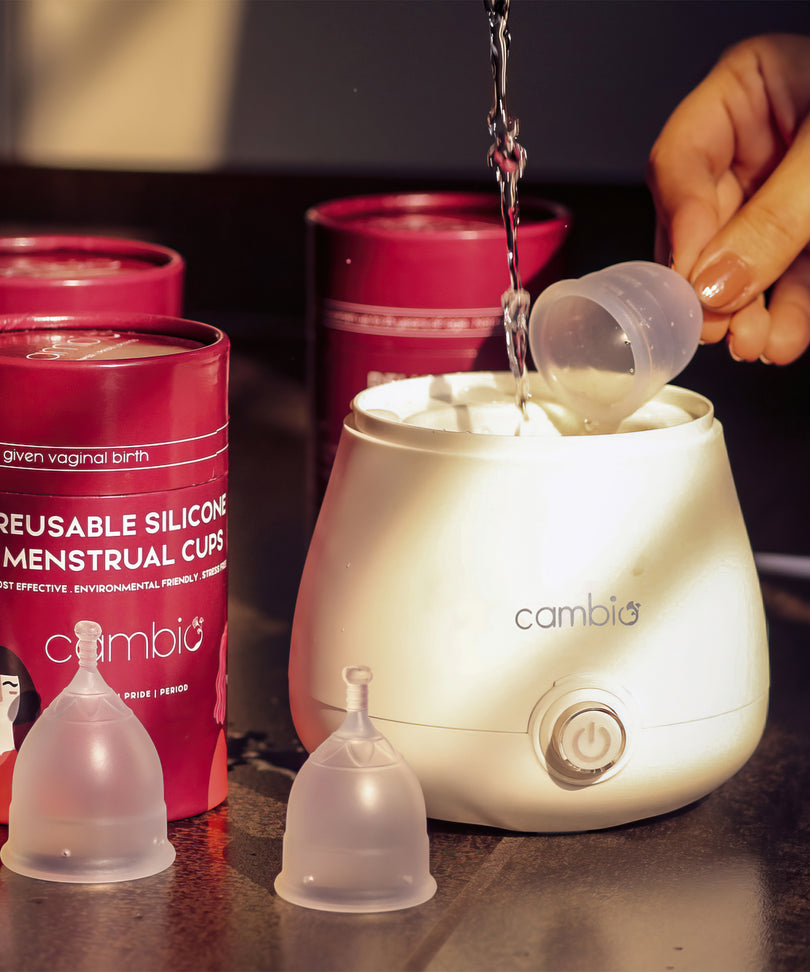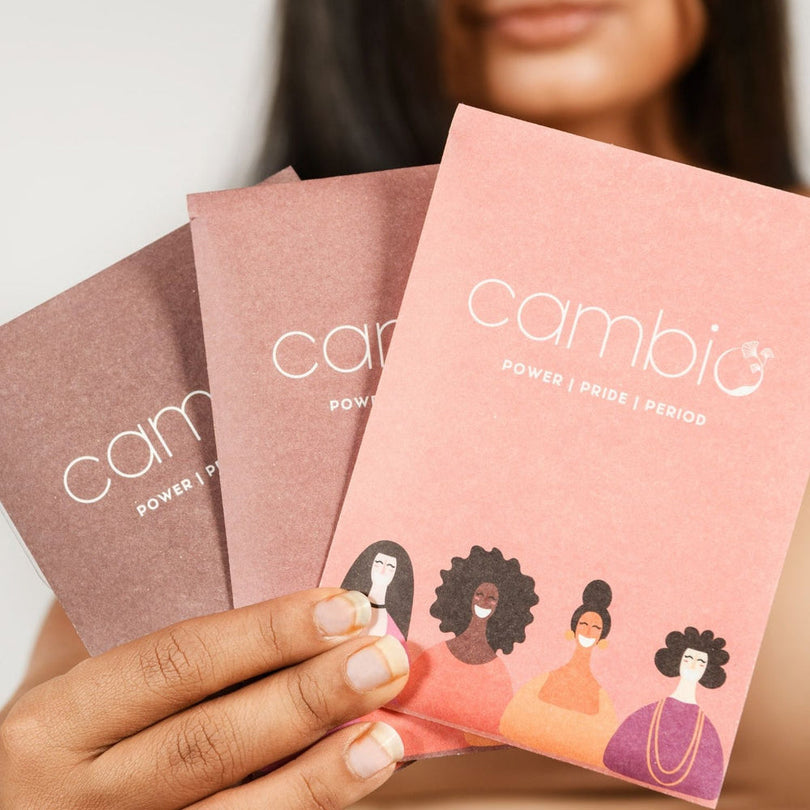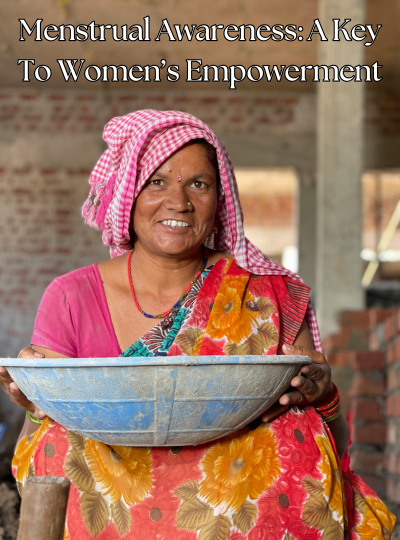Does ‘organic’ matter for period products?
‘Organic’ is most commonly used in the context of farming and food production, referring to the absence of chemicals and pesticides in the growth of crops. Sanitary products are made of a range of materials sourced from different crops like cotton, bamboo, banana fibres etc.
The environmental impact of period products is a major factor when opting for organic options. Commercial pads and tampons are made using non-organic cotton and plastics which generates a lot of waste and nulls the biodegradability of the cotton. Commercial sanitary pads can take up to 800 years to decompose whereas organic pads can take around 12-24 months in a composting facility.
What are the health benefits of switching to organic products?
Organic period products are also a healthier alternative as they don’t contain any harmful chemicals or fragrances which can cause chronic health conditions in the long term, including some forms of cancer. Dioxins present in many commercial pads are carcinogenic and have the potential to cause long-term harm.
While more research is still pending to reveal clear health benefits of using organic period products, there is a large pool of anecdotal evidence as organic product users share their experiences. Some report less to no irritation, an absence of rashes, and shorter and lighter periods. These changes may occur as one switches to organic products as they are no longer exposed to harmful chemicals present in commercial products.
Since the vagina is one of the most absorbent parts of the body, the absorption of chemicals into the body and the bloodstream can interfere with one’s hormone levels.
While organic period products may be healthier alternatives, it’s still important to maintain proper menstrual hygiene when using them. Leaving an organic tampon in for too long can still put you at risk for developing TSS. Change your period products on time to stay safe and hygienic.
Also read - Tampons vs pads
Which period products are better for the environment?
If you prefer using disposable products, organic pads and tampons that are fragrance-free are the most eco-conscious single-use items.
Opt for brands that use sustainable, plastic-free packaging and cardboard applicators for tampons. Don’t flush any of your used period products as they can still clog pipes and harm marine life as they break down. Always dispose of your used products in the trash.
If you’re considering using reusable period products, you can opt for a menstrual cup, period underwear or reusable cloth pads.
While not all of these options are strictly organic, they definitely contribute to the reduction of period waste and are budget-friendly too as this means less spending on disposables!
Can I use conventional products with organic/reusable ones?
Yes! Choosing to switch to organic products doesn’t mean you have to do it all in one go. Just as you may use different products/absorbencies to match your flow, you can switch between organic and commercial products based on your experience, circumstances, and budget.
Also read - Why switch to organic pads?
Are organic products as effective as commercial ones?
Yes! While commercial products use certain chemicals to increase the absorbency and effectiveness of their products, organic products are typically made of variants of cotton or other plant-based fibres which are naturally absorbent. Levels of absorbency between organic and commercial pads are therefore comparable.
If your flow is heavy and you can experiment with using an organic pad that’s a size larger than you’re used to.
Are organic products more comfortable?
Organic pads are much softer on the skin and are usually considered more comfortable, especially for those with sensitive skin. Organic tampons relatively feel similar to commercial ones.
When using organic pads, some users may feel more damp as the pads don’t fully dry out the vulva like commercial pads do. While this may not sound pleasant at first, it’s actually beneficial for the skin to retain some humidity and not get totally dried out by chemicals. Give yourself time to adjust to the skin feel.
Also read - Can sanitary pads cause rashes?
Which organic period products require the least maintenance?
Every product you use will require some form of maintenance, so it depends with which form of management is the most feasible for you!
Using disposables like organic pads and tampons requires regular repeat purchases. Opting for a subscription can take away the worry of remembering to stock up on your products every month. Disposables also require more frequent changes compared to some other products like a menstrual cup. Finally, it’s good practice to segregate your menstrual waste in a separate bin.
Using reusable products like reusable pads, period underwear or menstrual cups only require one purchase as the products will last you years! However, they also require time and effort to clean and sterilise each product between uses. Menstrual cups are fairly straightforward in terms of cleaning as they only need to be rinsed and sterilised. Garments such as cloth pads or period underwear need to be rinsed, washed and dried.
Also read - Menstrual cup vs pads
How can I switch to using organic period products?
-
Do your research - look into the benefits of using different products and find what is most suitable for you.
-
Try different brands/products - by using different products to manage your periods, you’ll better understand what works better for your health, hygiene, schedule, budget and other circumstances.
-
Give it time - not everyone gets a menstrual cup in on the first try. Similarly, it can take a while to adjust to the feel of an organic pad, or the practice of using cardboard applicators to insert your tampon. You can maintain a balance of using some commercial products until you’re fully settled into your choice of organic period products.
Read more
Can sanitary pads cause cancer?
Best alternative of sanitary pads
Are scented pads good for you?

